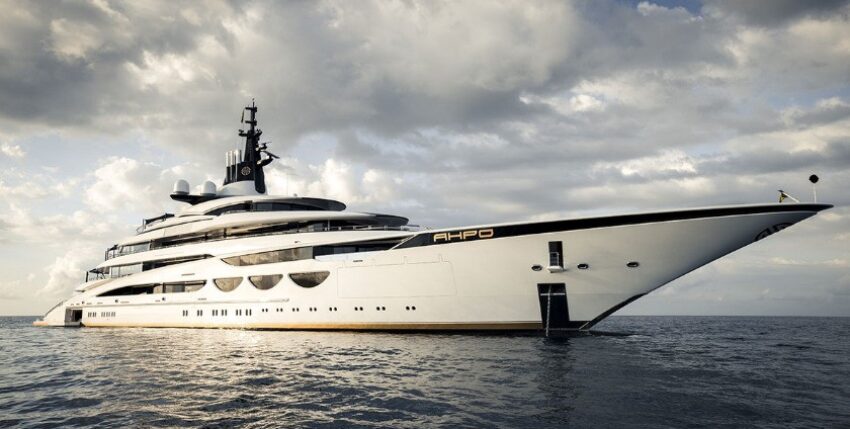The fact that yacht owners are not only the hunted, as Russia's oligarchs recently had to experience, but are also exposed to criticism of their use of resources despite all the admiration for the floating luxury palaces, has brought the industry onto the scene. As a result, the global shipbuilder Lürssen and its supplier Rolls-Royce have campaigned in favour of methanol as a climate-friendly fuel for yachts. Joint development projects are already underway, including the propulsion of a Lürssen yacht with methanol engines from MTU, a Rolls-Royce subsidiary. The two companies made the announcement during the Monaco Yacht Show in September. The Monaco Yacht Show is the world's largest trade fair for high-end yachts. Yachts with a length of 75 metres or more, to which the joint project relates, offer great potential for propulsion with methanol - ideally with green methanol. This synthetic fuel is produced using electrical energy from renewable sources such as solar or wind farms. For this purpose, climate-damaging carbon dioxide is extracted from the atmosphere and converted. The amount corresponds to that produced when running the engines on green methanol - the carbon footprint is therefore balanced. Furthermore, a methanol engine emits significantly fewer particles than a comparable diesel engine and does not require scrubber exhaust gas aftertreatment. However, very little has been said about initial applications and costs.
As if that wasn't enough, Rolls-Royce also announced that it is now working with the non-profit Water Revolution Foundation to promote sustainability in the superyacht industry. Products delivered from 2030 onwards are to emit 35 per cent less carbon dioxide than those manufactured in 2019. The ultimate goal is to achieve climate neutrality by 2050. It also remained unclear what this collaboration will look like in concrete terms. Nevertheless, there was talk of a promising collaboration at the Monaco Yacht Show.
Rolls-Royce Power Systems is working on hybrid drives, exhaust gas aftertreatment systems and fuel cell solutions and is now also approving sustainable fuels such as hydrogenated vegetable oils and e-diesel as fuel for MTU engines in order to achieve short-term improvements.
Much more concrete, however, is a collaboration between Rolls-Royce and Sowitec to drive forward power-to-X projects. The aim is to produce green hydrogen and e-fuels for shipping, aviation, mining, agriculture and data centres. Power-to-X projects with a total electrolysis capacity of up to 500 megawatts are to be completed by 2028. The plants will use renewable energy sources to produce electricity, which will be used to produce hydrogen with MTU electrolysers.
hsc







